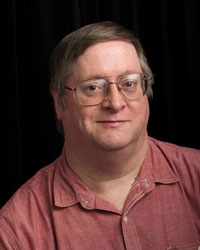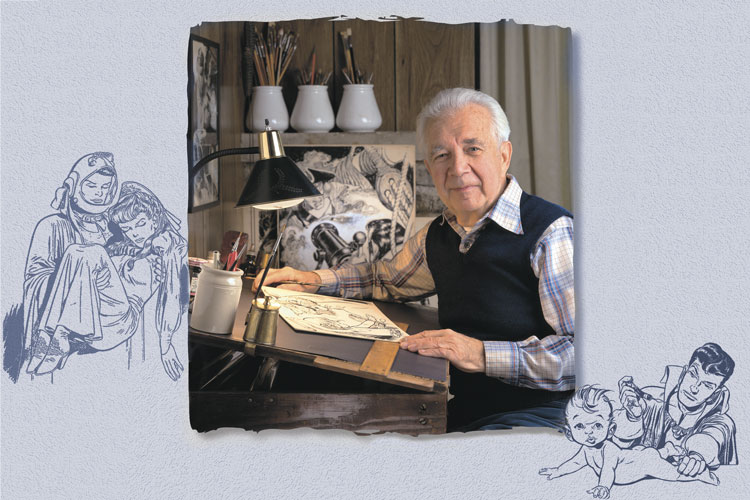Writers of the Future: Playing the Odds
A friend recently asked me about ways to improve your chances in the Writers of the Future contest.
I thought it was a good question, and I thought my answers were a nice summary of lessons learned. So I decided to share them here as a simple set of “rules”—in quotes, because they can be broken, and they’re no guarantee, but they’re good guidelines.
But before I get to the rules, I must remind you of the most reliable way to win the contest: write an excellent science fiction or fantasy story, 17,000 words or less, and send it in. Honestly, that’s the best thing you can do. Keep working on that!
Now for the rules…
- You should know that for pretty much every fiction market out there – and remember, Writers of the Future isn’t just a contest, it’s a pro-paying market—any rule that you hear, even from the editor directly, can usually be circumvented by a really brilliant story. That’s what every editor wants: a really brilliant story that’s close enough to their genre to give them an excuse to buy it. If you can pass Rule 1, you can ignore the rest of these rules. You’re covered. But you still might want to read them, just in case they give you ideas.
- David Farland is the coordinating judge for the contest. Out of the thousands of entries they receive every quarter, Dave selects 8 as Finalists. Then a panel of quarterly judges, all pro writers themselves, select 3 winners for the quarter. But Dave is more than the coordinating judge, more than a bestselling author: he is also a writing mentor through his site My Story Doctor. He also writes a series of writing tips on his blog. Every so often, he blogs specifically about what he’s looking for in the contest, or why some stories don’t make the cut. So Rule 2 is: Read Dave’s Tips.
- Rule 3 is: Don’t argue with Dave’s Tips! I can’t believe it, but some people do! They say he’s wrong. Now it might be argued that…
“There are nine-and-sixty ways of constructing tribal lays, and every single one of them is right!” —Rudyard Kipling
And Dave would not disagree! There are many ways to write a story. If you can tell a great story that ignores Dave’s Tips, more power to you! But that doesn’t make Dave wrong about what he looks for in the contest! He might be wrong about what readers want. He’s not wrong about what he looks for. - Except… In at least one case, Dave was wrong. He’s on record as saying he hates werewolf stories. He never even finishes them. But… Last year Julie Frost won with a werewolf story. How did she do it? Simple: she wrote a story so good that Dave could not ignore it. Rule 4 is: See Rule 1.
- They get thousands of entries every quarter. Many are by people who just enter contests without looking into the details. A good number aren’t even science fiction or fantasy. So if Dave doesn’t see an SF/F element by the end of page 2—or at least a hint—he’ll probably stop reading. If it looks promising otherwise, he might skip to the end to see if it’s there.
- Dave does a lot of skipping to the end. He has seen a lot of plots. If he figures out your plot on page 2, he skips to the end to see if he’s right. If he is, you’re probably out. But if he’s surprised, he may go back to see how you got there.
- They get a lot of stories inspired by the latest big movie. They all blur together and most likely none of them get through. As excited as you may be by the latest blockbuster, put that idea aside. Let it simmer. Come back to it later, and give it a fresh twist.
- Dave likes to see three things as early as possible: A character, in a setting, with a problem. It might not be THE problem, but A problem. Struggling with that reveals character and setting.
- Dave really likes good description. That held me back for a long time. I’m weak on description.
- As for story structure, unless you’ve got a brilliant alternative (Scott Parkin did in Volume 31 – see Rule 1), Dave prefers a traditional Freytag triangle with three Try/Fail Cycles. Two is too easy, four is dragging it out. Three is best. You might have some of the structure happen before the story, or off screen, but try to have it all there somewhere.
- Dave likes a story to mean something on an emotional level. Cool plots are great. Cool plots that mean something are memorable.
- If your story is set in a modern or historical setting, Dave is a stickler for research and for voice. And he has been a lot of places, he knows a lot of things, and he has met a lot of people. If you’re faking your research, he’ll probably know.
- If, on the other hand, you make up your own universe to avoid that whole research trap, Dave likes it logical and consistent.
- The contest never gets enough good humor, but they get way too much bad.
- Talk to winners. Ask what worked for them. Ask what they learned. My “rules” are just from my one experience. Get multiple perspectives.
That’s a good start. Nothing guarantees a win, of course, but these “rules” will move the odds in your favor.

Martin L. Shoemaker is a programmer who writes on the side… or maybe it’s the other way around. Programming pays the bills, but a second place story in the Jim Baen Memorial Writing Contest earned him lunch with Buzz Aldrin. Programming never did that!
Martin’s work has appeared in Clarkesworld, Analog Science Fiction/Science Fact, Galaxy’s Edge, Digital Science Fiction, Forever Magazine, Humanity 2.0, The Year’s Top Short SF Novels 4, Writers of the Future Volume 31, Time Travel Tales, Trajectories, Little Green Men: Attack!, The Glass Parachute, and The Year’s Best Science Fiction: Thirty-First Annual Collection.




Very good …. Thanks, JR